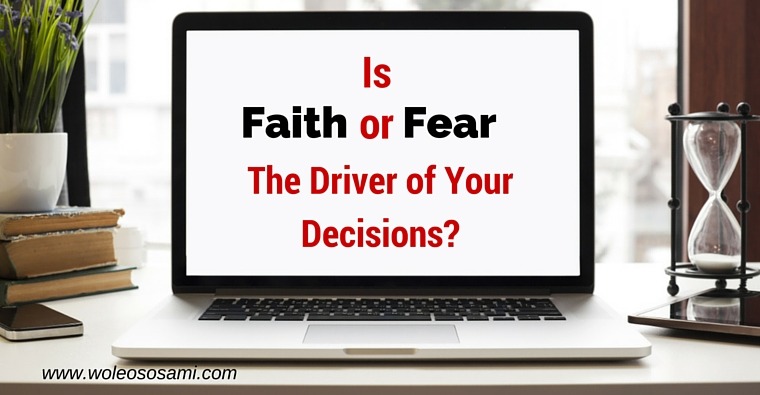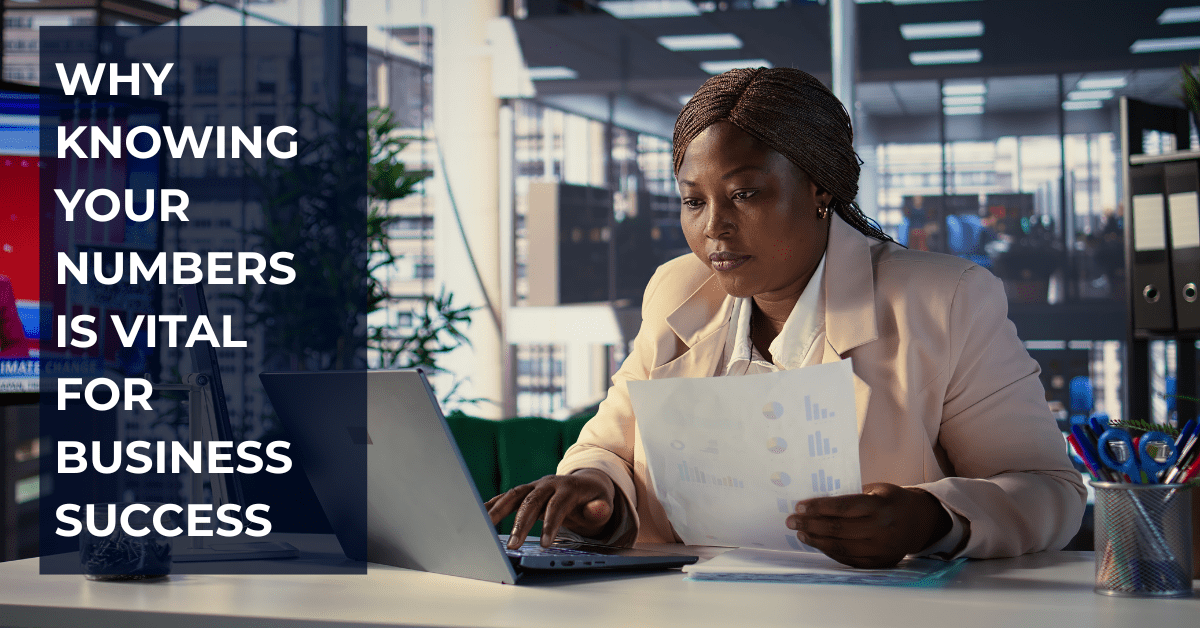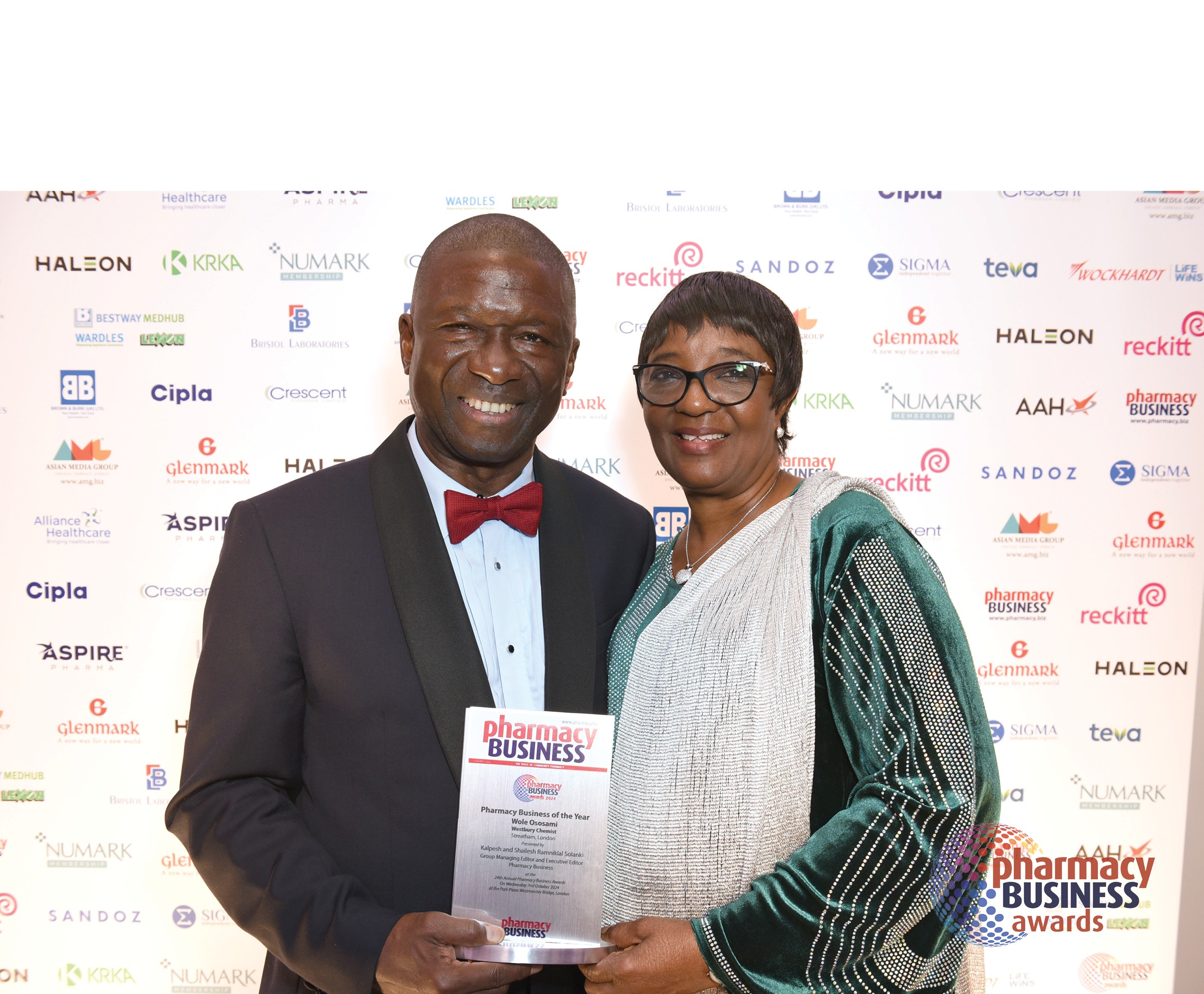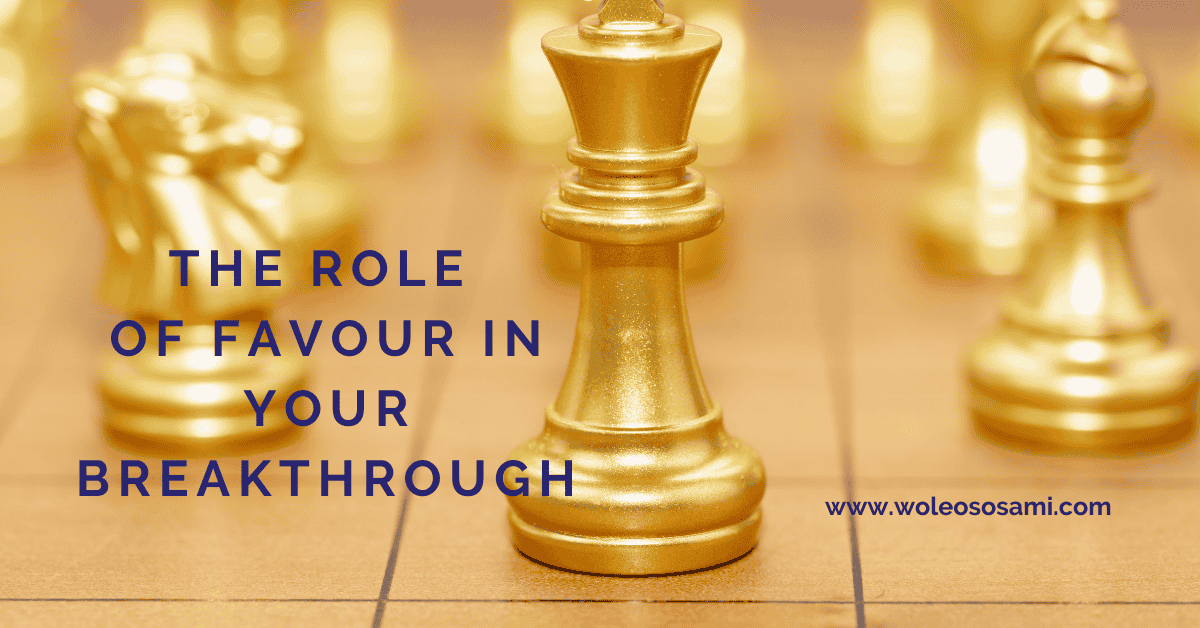One of the things I have to do on a regular basis is to make decisions for which I am unsure of the outcome. I guess you have to do that as well.
[featured-image single_newwindow=”false”](Image courtesy of Dollar Photo Club)[/featured-image]
We all find ourselves in situations where we have to make use of historical information mixed with our best guessed or researched outlook of the future to make a decision today that has implications for our tomorrow.
You may have heard it said that:
[shareable]Past performance is not an indicator of future results[/shareable]
That’s the disclaimer you will get when investing your hard-earned money but then you still have to take a decision. Might I also add that doing nothing is also a decision.
So when faced with a decision, are you going to choose faith or fear?
For example, I recently made a big ticket purchase and the question I wrestled with was not whether I should buy but why I should buy.
Was I buying because of the prospects of growth and expansion (faith) or was it so I could keep out the competition (fear).
The faith argument says that “this infrastructural investment is needed to support our growth and expansion plans” and fear tell us that “if we don’t do this, we are going to lose out to the competition”. Both decisions will be driven by the same historical facts and can seem logical.
Is faith or fear the driver of your decisions?
Fear can be driven by factors such as:
- A lack of faith in our own abilities
- Negative external circumstances
- Change
- Possible conflict
- Attitude to risk
Fear makes us reactive. When you act out of fear there is the tendency to dwell on the negative facts and resort to escapism, paralysis or aggression.
For example, you may feel that you are not a good public speaker and as such you shy away from all speaking engagements (escape). Or you stay in a job that you don’t like or find fulfilling because finding a new job would mean that you would have to give up a comfortable schedule (paralysis). Or you can become defensive in your position and refuse to step forward to explore new opportunities (aggression).
How can you choose faith?
Faith does not have to be blind. The person who acts out of faith may recognise negative circumstances and still move forward in faith.
Faith is proactive and recognises the challenges that the future presents but believes that the chances for success are high. People who act in faith do not allow the negatives to overpower their chances of success, happiness and reward.
How to eliminate fear and decide in faith
It is highly unlikely that you can eliminate fear, but you can reduce its influence on your actions and decisions.
Here are 5 simple actions to practise.
#1. Stop being a perfectionist
The drive to succeed and become perfect or the best often leads to the fear of making mistakes and hence procrastination and inaction. Mistakes are an inevitable part of being human. Mistakes are a fact of life.
#2. Embrace failure
Look at failure as an opportunity to learn, improve and grow. Asking for feedback from other people involved can turn up valuable lessons that can be applied in the future. It’s also good not to take failure personal so that it has no impact on your self-esteem.
#3. Accept that you can’t control everything
You can’t always control what happens to you but you can certainly control how you react to it. There are times when you have crossed all the “T’s” and dotted the “i’s”, everything seems perfect but yet things end up not going according to plan.
#4. Focus on your strengths
Opportunity lies in the future and not in the past. Instead of focusing on the negatives that scare you, focus on what you are good at. Let this strength be your source of energy and enthusiasm.
#5. Ask for support
Don’t wait until everything fails before you ask for help. Being alone can magnify fear. It’s easier to act in faith when you have people you can go to for advice, or simply to act as listening ears. Support can also be in the form of a trusted friend, a coach or a mentor.
The next time you make a decision, remember that you always have the choice to move forward in faith and be proactive.







